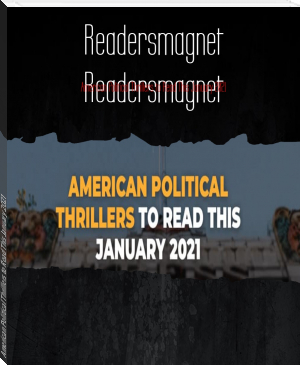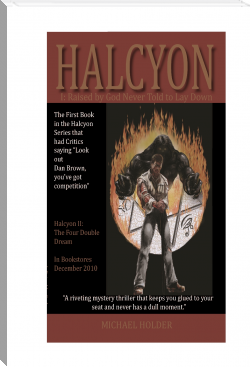Crisis Management: Beyond the Call of Duty by Craig A. McDonough (best inspirational books .txt) 📕

- Author: Craig A. McDonough
- Performer: -
Book online «Crisis Management: Beyond the Call of Duty by Craig A. McDonough (best inspirational books .txt) 📕». Author Craig A. McDonough
7. There are not more than five musical notes, yet the combinations of these five give rise to more melodies than can ever be heard.
8. There are not more than five primary colours (blue, yellow, red, white, and black), yet in combination they produce more hues than can ever be seen.
9 There are not more than five cardinal tastes (sour, acrid, salt, sweet, bitter), yet combinations of them yield more flavours than can ever be tasted.
10. In battle, there are not more than two methods of attack—the direct and the indirect; yet these two in combination give rise to an endless series of manœuvers.
11. The direct and the indirect lead on to each other in turn. It is like moving in a circle—you never come to an end. Who can exhaust the possibilities of their combination?
12. The onset of troops is like the rush of a torrent which will even roll stones along in its course.
13. The quality of decision is like the well-timed swoop of a falcon which enables it to strike and destroy its victim.
[The Chinese here is tricky and a certain key word in the context it is used defies the best efforts of the translator. Tu Mu defines this word as "the measurement or estimation of distance." But this meaning does not quite fit the illustrative simile in §. 15. Applying this definition to the falcon, it seems to me to denote that instinct of self-restraint which keeps the bird from swooping on its quarry until the right moment, together with the power of judging when the right moment has arrived. The analogous quality in soldiers is the highly important one of being able to reserve their fire until the very instant at which it will be most effective. When the "Victory" went into action at Trafalgar at hardly more than drifting pace, she was for several minutes exposed to a storm of shot and shell before replying with a single gun. Nelson coolly waited until he was within close range, when the broadside he brought to bear worked fearful havoc on the enemy’s nearest ships.]
14. Therefore the good fighter will be terrible in his onset, and prompt in his decision.
[The word "decision" would have reference to the measurement of distance mentioned above, letting the enemy get near before striking. But I cannot help thinking that Sun Tzŭ meant to use the word in a figurative sense comparable to our own idiom "short and sharp." Cf. Wang Hsi’s note, which after describing the falcon’s mode of attack, proceeds: "This is just how the ‘psychological moment’ should be seized in war."]
15. Energy may be likened to the bending of a crossbow; decision, to the releasing of the trigger.
[None of the commentators seem to grasp the real point of the simile of energy and the force stored up in the bent cross-bow until released by the finger on the trigger.]
16. Amid the turmoil and tumult of battle, there may be seeming disorder and yet no real disorder at all; amid confusion and chaos, your array may be without head or tail, yet it will be proof against defeat.
[Mei Yao-ch’en says: "The subdivisions of the army having been previously fixed, and the various signals agreed upon, the separating and joining, the dispersing and collecting which will take place in the course of a battle, may give the appearance of disorder when no real disorder is possible. Your formation may be without head or tail, your dispositions all topsy-turvy, and yet a rout of your forces quite out of the question."]
17. Simulated disorder postulates perfect discipline; simulated fear postulates courage; simulated weakness postulates strength.
[In order to make the translation intelligible, it is necessary to tone down the sharply paradoxical form of the original. Ts’ao Kung throws out a hint of the meaning in his brief note: "These things all serve to destroy formation and conceal one’s condition." But Tu Mu is the first to put it quite plainly: "If you wish to feign confusion in order to lure the enemy on, you must first have perfect discipline; if you wish to display timidity in order to entrap the enemy, you must have extreme courage; if you wish to parade your weakness in order to make the enemy over-confident, you must have exceeding strength."]
18. Hiding order beneath the cloak of disorder is simply a question of subdivision;
[See supra, § 1.]
concealing courage under a show of timidity presupposes a fund of latent energy;
[The commentators strongly understand a certain Chinese word here differently than anywhere else in this chapter. Thus Tu Mu says: "seeing that we are favourably circumstanced and yet make no move, the enemy will believe that we are really afraid."]
masking strength with weakness is to be effected by tactical dispositions.
[Chang Yu relates the following anecdote of Kao Tsu, the first Han Emperor: “Wishing to crush the Hsiung-nu, he sent out spies to report on their condition. But the Hsiung-nu, forewarned, carefully concealed all their able-bodied men and well-fed horses, and only allowed infirm soldiers and emaciated cattle to be seen. The result was that spies one and all recommended the Emperor to deliver his attack. Lou Ching alone opposed them, saying: ‘When two countries go to war, they are naturally inclined to make an ostentatious display of their strength. Yet our spies have seen nothing but old age and infirmity. This is surely some ruse on the part of the enemy, and it would be unwise for us to attack.’ The Emperor, however, disregarding this advice, fell into the trap and found himself surrounded at Po-teng.”]
19. Thus one who is skilful at keeping the enemy on the move maintains deceitful appearances, according to which the enemy will act.
[Ts’ao Kung’s note is "Make a display of weakness and want." Tu Mu says: "If our force happens to be superior to the enemy’s, weakness may be simulated in order to lure him on; but if inferior, he must be led to believe that we are strong, in order that he may keep off. In fact, all the enemy’s movements should be determined by the signs that we choose to give him." Note the following anecdote of Sun Pin, a descendent of Sun Wu: In 341 B.C., the Ch’i State being at war with Wei, sent T’ien Chi and Sun Pin against the general P’ang Chuan, who happened to be a deadly personal enemy of the later. Sun Pin said: "The Ch’i State has a reputation for cowardice, and therefore our adversary despises us. Let us turn this circumstance to account." Accordingly, when the army had crossed the border into Wei territory, he gave orders to show 100,000 fires on the first night, 50,000 on the next, and the night after only 20,000. P’ang Chuan pursued them hotly, saying to himself: "I knew these men of Ch’i were cowards: their numbers have already fallen away by more than half." In his retreat, Sun Pin came to a narrow defile, which he calculated that his pursuers would reach after dark. Here he had a tree stripped of its bark, and inscribed upon it the words: "Under this tree shall P’ang Chuan die." Then, as night began to fall, he placed a strong body of archers in ambush near by, with orders to shoot directly if they saw a light. Later on, P’ang Chuan arrived at the spot, and noticing the tree, struck a light in order to read what was written on it. His body was immediately riddled by a volley of arrows, and his whole army thrown into confusion. [The above is Tu Mu’s version of the story; the Shih Chi, less dramatically but probably with more historical truth, makes P’ang Chuan cut his own throat with an exclamation of despair, after the rout of his army.] ]
He sacrifices something, that the enemy may snatch at it.
20. By holding out baits, he keeps him on the march; then with a body of picked men he lies in wait for him.
[With an emendation suggested by Li Ching, this then reads, "He lies in wait with the main body of his troops."]
21. The clever combatant looks to the effect of combined energy, and does not require too much from individuals.
[Tu Mu says: "He first of all considers the power of his army in the bulk; afterwards he takes individual talent into account, and uses each men according to his capabilities. He does not demand perfection from the untalented."]
Hence his ability to pick out the right men and utilise combined energy.
22. When he utilises combined energy, his fighting men become as it were like unto rolling logs or stones. For it is the nature of a log or stone to remain motionless on level ground, and to move when on a slope; if four-cornered, to come to a standstill, but if round-shaped, to go rolling down.
[Ts’au Kung calls this "the use of natural or inherent power."]
23. Thus the energy developed by good fighting men is as the momentum of a round stone rolled down a mountain thousands of feet in height. So much on the subject of energy.
[The chief lesson of this chapter, in Tu Mu’s opinion, is the paramount importance in war of rapid evolutions and sudden rushes. "Great results," he adds, "can thus be achieved with small forces."]
[1] "Forty-one Years in India," chapter 46.
[Chang Yu attempts to explain the sequence of chapters as follows: "Chapter IV, on Tactical Dispositions, treated of the offensive and the defensive; chapter V, on Energy, dealt with direct and indirect methods. The good general acquaints himself first with the theory of attack and defence, and then turns his attention to direct and indirect methods. He studies the art of varying and combining these two methods before proceeding to the subject of weak and strong points. For the use of direct or indirect methods arises out of attack and defence, and the perception of weak and strong points depends again on the above methods. Hence the present chapter comes immediately after the chapter on Energy."]
1. Sun Tzŭ said: Whoever is first in the field and awaits the coming of the enemy, will be fresh for the fight; whoever is second in the field and has to hasten to battle, will arrive exhausted.
2. Therefore the clever combatant imposes his will on the enemy, but does not allow the enemy’s will to be imposed on him.
[One mark of a great soldier is that he fight on his own terms or fights not at all. [1] ]
3. By holding out advantages to him, he can cause the enemy to approach of his own accord; or, by inflicting damage, he can make it impossible for the enemy to draw near.
[In the first case, he will entice him with a bait; in the second, he will strike at some important point which the enemy will have to defend.]
4. If the enemy is taking his ease, he can harass him;
[This passage may be cited as evidence against Mei Yao- Ch’en’s interpretation of I. § 23.]
if well supplied with food, he can starve him out; if quietly encamped, he can force him to move.
5. Appear at points which the enemy must hasten to defend; march swiftly to places where you are not expected.
6. An army may march great distances without distress, if it marches through country where the enemy is not.
[Ts’ao Kung sums up very well: "Emerge from the void [q.d. like "a bolt from the blue"], strike at vulnerable points, shun places that are defended, attack in unexpected quarters."]
7. You can be sure of succeeding in your attacks if you only attack places which are undefended.
[Wang Hsi explains "undefended places" as "weak points; that is to say, where the general is lacking in capacity, or the soldiers in spirit; where the walls are not strong enough, or the precautions not strict enough; where relief comes too late, or





Comments (0)